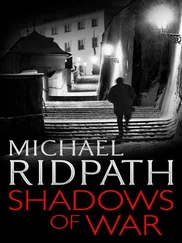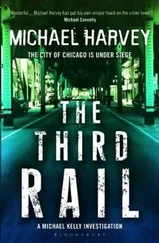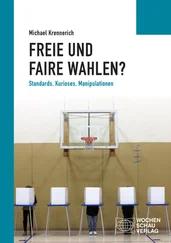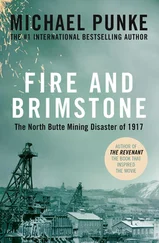Michael Ridpath - Free To Trade
Здесь есть возможность читать онлайн «Michael Ridpath - Free To Trade» весь текст электронной книги совершенно бесплатно (целиком полную версию без сокращений). В некоторых случаях можно слушать аудио, скачать через торрент в формате fb2 и присутствует краткое содержание. Жанр: Триллер, на английском языке. Описание произведения, (предисловие) а так же отзывы посетителей доступны на портале библиотеки ЛибКат.
- Название:Free To Trade
- Автор:
- Жанр:
- Год:неизвестен
- ISBN:нет данных
- Рейтинг книги:3 / 5. Голосов: 1
-
Избранное:Добавить в избранное
- Отзывы:
-
Ваша оценка:
- 60
- 1
- 2
- 3
- 4
- 5
Free To Trade: краткое содержание, описание и аннотация
Предлагаем к чтению аннотацию, описание, краткое содержание или предисловие (зависит от того, что написал сам автор книги «Free To Trade»). Если вы не нашли необходимую информацию о книге — напишите в комментариях, мы постараемся отыскать её.
Free To Trade — читать онлайн бесплатно полную книгу (весь текст) целиком
Ниже представлен текст книги, разбитый по страницам. Система сохранения места последней прочитанной страницы, позволяет с удобством читать онлайн бесплатно книгу «Free To Trade», без необходимости каждый раз заново искать на чём Вы остановились. Поставьте закладку, и сможете в любой момент перейти на страницу, на которой закончили чтение.
Интервал:
Закладка:
I scanned the shelves briefly. The titles of nearly all the books I saw had something to do with finance or economics. Many of them were written in the nineteenth century. There was one set of shelves which aroused my interest. It held titles such as Gleick's Chaos Theory, Rude's The Crowd in History and even Darwin's On the Origin of Species. There were works on psychology, physics, religion and linguistics.
Hamilton drew up beside me. 'You should read some of these. It would help you understand our job better.'
I looked at him, puzzled.
'Markets are about movement of prices, about groups of people interacting, about competition, about information, about fear, greed, belief,' he went on. 'All these things are studied in detail by a range of academic disciplines, each of which can give you an insight into why the market behaves the way it does.'
'Oh, I see,' I said. Now I understood. In Hamilton's world the great scholars of matter and the mind had made a significant contribution to financial theory. They did have some use after all.
I pulled out The Prince by Niccolo Machiavelli. 'And this?' I said showing it to Hamilton.
He smiled. 'Oh, Machiavelli understood power. That book is all about power and how to use it. And so are the financial markets. Money is power, information is power, and analytical ability is power.'
'But doesn't he write about how to become a ruthless dictator?'
'Oh no, that's much too simplistic. Certainly, he believes the means justifies the ends. But although a successful prince will do whatever is required to achieve his goal, he will always maintain the semblance of virtue. That is vital.'
I looked puzzled.
Hamilton laughed. 'In the markets that means be smart, be imaginative, but at all costs keep your reputation. Remember that.'
'I will,' I said, putting the book back on its shelf.
'I like this room,' Hamilton said, relaxed. 'I spend most of my time here. Look at that view.'
It was indeed a remarkable view, looking out over the offices of the City from St Paul's to the East End. De Jong's offices were clearly distinguishable. A source of inspiration for Hamilton whenever he was bogged down in his studies of the markets.
We went back into the living room. 'Scotch?' he asked.
'Yes, please.'
He splashed generous portions into two glasses and added a small amount of water to each. He handed me one and we both sat down.
After a moment's appreciation of his drink, Hamilton asked, 'Do you think she committed suicide?' He studied my face closely.
I sighed. 'No,' I said. 'No matter what the police said, Debbie would never do anything like that.'
'She was concerned about her job, though, wasn't she?' said Hamilton. 'I don't know whether she told you, but we did have a slightly difficult discussion about her future not long before she died.'
'Yes, I know,' I said. 'She did tell me about that conversation and it did upset her for a bit. But she soon forgot it. She was not the kind of person who would allow a little thing like work get in the way of her enjoying life. I am quite sure that is not the reason she died.'
Hamilton relaxed. 'No, suicide doesn't seem like her at all,' he said. 'It must have been an accident.'
There was silence for a moment.
'I'm not so sure,' I said.
'What do you mean?'
'I saw someone just before she died.'
'Saw someone? Who?'
'I don't know who it was. It's probably someone who works in the City. Thin. Mid-thirties. Very fit. Mean-looking.'
'What was he doing? Did you see him do anything to her?'
'It was just as we were leaving. He just walked up to her, groped her breast, and walked off into the night. A couple of minutes later, she set off as well.'
'What an extraordinary thing to do! Didn't you do anything?'
'Debbie stopped me,' I said. 'And she looked frightened. I don't blame her. There was something very strange about that man.'
'Have you told the police?'
'Yes.'
'What did they think?'
'Well, they took lots of notes. They didn't actually say they thought anything. But it looks to me like he must have pushed Debbie into the river. Don't you think?'
Hamilton sat for a moment, gently touching his chin, in his habitual thinking pose. 'It certainly looks like it, doesn't it. But who is he? And why would he do it?' We sat in silence for a minute, each wrapped in our own thoughts. Hamilton was no doubt trying to figure the problem out; I was missing Debbie. It had been a long day.
I gulped my whisky. 'Let me get you another,' said Hamilton.
With another glass safely in my hand, I changed the subject. 'How long have you lived here?' I asked.
'Oh, about five years,' Hamilton answered. 'Since my divorce. It's very convenient for the office.'
'I didn't know you were divorced.' I said, tentatively. I wasn't sure how personal Hamilton would allow the conversation to become. But I was curious. No one at the office knew anything of Hamilton's life outside it, but it was something about which we all speculated.
'Didn't you? I suppose you wouldn't. I don't talk about it much. But I have a son, Alasdair.' He pointed to a photograph of a smiling seven- or eight-year-old boy kicking a football. I hadn't noticed it before. The boy looked a lot like Hamilton, but without the gloom.
'Do you see him much?' I asked.
'Oh yes, every other weekend,' he said. 'I have a cottage in Perthshire near where his mother lives. It's very useful. And it's much better for him to be up there than in this dreadful city. It's lovely up there. You can get up on to the hills and forget all this.' He gestured out of the window.
I told him about Barthwaite and my own childhood there roving over the moors. Hamilton listened. It was strange to be talking to Hamilton about something like that, but he seemed interested, and as I talked on I began to relax. It was good to talk about a place hundreds of miles and ten years away rather than about today, here.
'I sometimes wish I had stayed in Edinburgh,' Hamilton said. 'I could have had a nice easy job up there, managing a few hundred million for one of those insurance companies.'
'Why didn't you?' I asked.
'Well, I tried it for a bit, but it didn't suit me,' he said. 'Those Scottish funds are good, but they have no sense of adventure. I needed to be down here. At the sharp end.' He looked into his whisky glass. 'Of course Moira didn't like it. She didn't understand the hours I worked. She thought I could do my job properly between nine and five and spend the rest of my time at home. But this job requires a lot more than that and she just didn't believe me. So we split up.'
'I'm sorry,' I said. And I was sorry for him. He was a lonely man, and cut off from his wife and son, he must be lonelier still. Of course it was his own decision; he had put his work squarely before his marriage. None the less I sympathised. I could see myself in the same situation in ten years' time. I shuddered. I remembered my conversation with Debbie. I was beginning to think she was right.
Hamilton looked up from his whisky. 'So how are you finding De Jong, now you have been here six months? Enjoying it?'
'Yes, I am. Very much. I am very pleased I joined the firm.'
'How do you find trading?'
'I love it. I just wish I was better at it. Sometimes I think that I am getting the hang of it, and then it all goes wrong. I wonder if it isn't just all about luck.'
Hamilton laughed. 'You shouldn't ever think that, laddie. Of course it's all about luck, or at least each individual trade is. But if you discipline yourself to trade only when the odds are in your favour, in the long run you will certainly come out ahead. It's basic statistics.'
Hamilton saw my expression and laughed again. 'No, you are right, it's not quite that easy. The trick is to work out when the odds are in your favour, and that can take years of experience. But don't worry. You are on the right track. Just persevere, keep thinking about what you are doing and why, learn from your mistakes, and you will turn out very well. We will make a good team.'
Читать дальшеИнтервал:
Закладка:
Похожие книги на «Free To Trade»
Представляем Вашему вниманию похожие книги на «Free To Trade» списком для выбора. Мы отобрали схожую по названию и смыслу литературу в надежде предоставить читателям больше вариантов отыскать новые, интересные, ещё непрочитанные произведения.
Обсуждение, отзывы о книге «Free To Trade» и просто собственные мнения читателей. Оставьте ваши комментарии, напишите, что Вы думаете о произведении, его смысле или главных героях. Укажите что конкретно понравилось, а что нет, и почему Вы так считаете.












